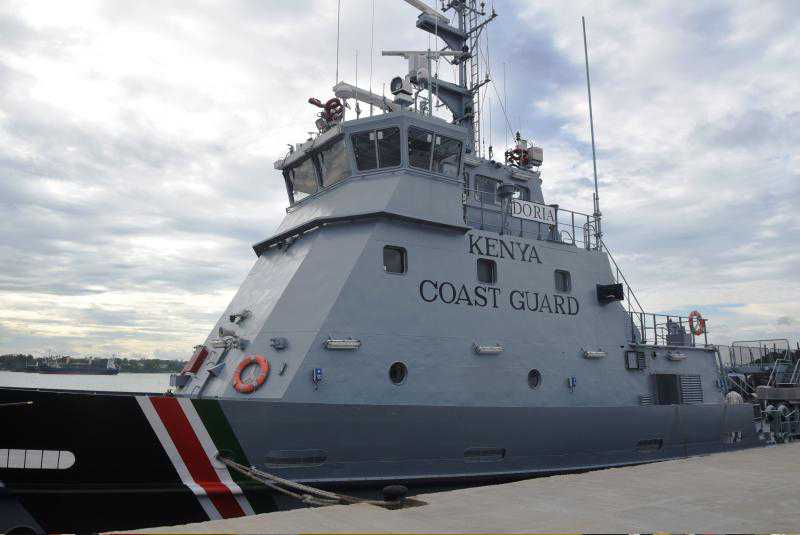
The MV Doria which has been named Kenya Coast Guard Ship for monitoring the Kenyan Blue Economy along the Kenyan water.
In Kenya, the big economic talk is about something called ‘Blue Economy’ conference that starts in Nairobi today. The term ‘Blue Economy’ sounds exotic, elitist, and maybe romantic in part because so many foreign dignitaries will show up. Does it mean “blue colour jobs”, as TV Commentator and former magistrate Joy Mdivo, would argue? Or is it, as a wit put it, many people talking about fish and water and then giving it a big name? There is limited validity in both observations in that participants will talk about harnessing fish in oceans, seas, lakes, and rivers and that many “blue colour jobs” can arise from implementing suggestions about “blue economy”.